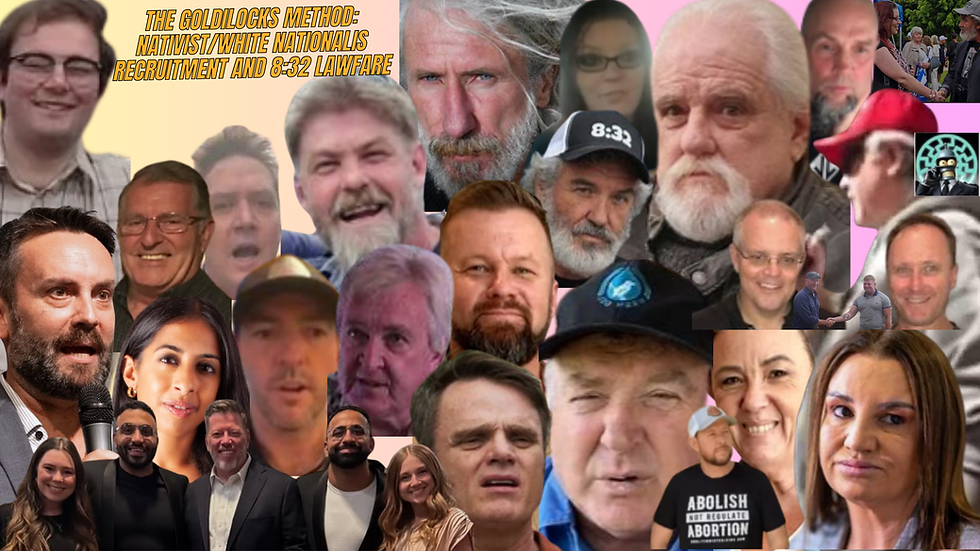Peter Parrot Pirate Monkeys - Stepping Off The Boat
- gattygee
- Jun 8
- 4 min read
Peter Thiel is one of the most influential—and arguably one of the most dangerous—political financiers of our time. He’s a billionaire technocrat with a soft spot for strongmen, a disdain for democracy, and a futurist vision that seems to flirt with feudalism. Wrapped in a libertarian flag and Silicon Valley arrogance, Thiel has bankrolled everything from data surveillance companies like Palantir to the most extreme corners of the far-right ecosystem.

Libertarianism for Billionaires, Not the People
Thiel rose to fame co-founding PayPal and backing Facebook early on. But it wasn’t just his tech success that defined him—it was his vocal embrace of libertarianism. The core appeal? Thiel believes in minimal government... as long as that minimalism doesn’t touch the power of billionaires like himself.
Thiel’s ideological DNA is linked to the Dark Enlightenment, a reactionary movement that calls for the end of egalitarianism and the rebirth of hierarchy. The term was popularised by Nick Land, a British philosopher whose writings laid the groundwork for neo-reactionary (NRx) thought.
Core beliefs of the Dark Enlightenment include:
Democracy is a failed experiment.
People are not equal and shouldn’t be treated as such.
Society should be ruled by a "natural elite"—tech lords, monarchs, or some hybrid of both.
Peter Thiel challenges the legitimacy and effectiveness of international institutions like the United Nations (UN) and the World Health Organization (WHO), seeing their policies and programs as emblematic of the bureaucratic, centralized governance that the Dark Enlightenment ideology rejects. From his Dark Enlightenment perspective—which favors hierarchical, technocratic rule over democratic and globalist systems—Thiel views bodies like the UN and WHO as flawed “products” of liberal democracy. His skepticism of these organisations reflects the broader Dark Enlightenment disdain for mass governance and preference for decentralized, elite-led control.
Thiel has donated to and mentored several figures influenced by these views, including far-right U.S. Senate candidates like J.D. Vance and Blake Masters. These are not fringe ideas—they’re embedded in the political DNA of rising conservative movements in the U.S., and mirrored in elements of the far right in Australia.
Peter Thiel has openly questioned the compatibility of democracy with freedom—and women’s suffrage is one of the reasons he gives. In his 2009 essay for the Cato Institute, Thiel wrote: “Since 1920, the vast increase in welfare beneficiaries and the extension of the franchise to women—two constituencies that are notoriously tough for libertarians—have rendered the notion of ‘capitalist democracy’ into an oxymoron.” (Cato Unbound, 2009) This isn't just a throwaway line. It reveals a worldview in which expanding rights to women is seen as a threat to the “freedom” of markets and elites. Rather than celebrating suffrage as a democratic milestone, Thiel laments it as a turning point when government started catering to the needs of everyday people. His framing mirrors broader libertarian reactionary trends that blame egalitarianism—not inequality—for the decay of Western civilisation.
Thiel doesn’t just believe the state should shrink—he believes it should get out of the way entirely for the elite to experiment with sovereignty. He’s invested in seasteading projects, which aim to create independent, floating city-states in international waters. Why? To escape taxation, regulation, and what he sees as the tyranny of democracy.
At the same time, he has funded Palantir, a surveillance tech company with deep contracts with the U.S. military, ICE, and police departments. Libertarianism, it seems, doesn’t prevent Thiel from profiting off the surveillance state—so long as he’s the one holding the keys.
Thiel’s vision aligns with a disturbing global trend: the transformation of libertarian rhetoric into authoritarian reality. His network platforms figures who weaponise the language of individual liberty to:
attack public institutions,
undermine voting rights (particularly for women and minorities),
and justify authoritarian policies under the guise of "restoring order."
In Australia, similar language is now parroted by so-called “freedom” candidates and think tanks with strong ties to international libertarian networks, often funded or inspired by tech billionaires and corporate actors.
Thiel’s money is not neutral. It carries with it a blueprint—a Dark Enlightenment playbook that treats democracy as expendable, the people as pawns, and inequality as virtue.
If we are to resist creeping authoritarianism, we must name and understand its architects. Peter Thiel doesn’t just represent a libertarian billionaire. He represents an ideology that cloaks fascism in futurism, and calls it freedom.
Peter Thiel's interactions with individuals linked to VDARE—a white nationalist website designated as a hate group by the Southern Poverty Law Center (SPLC)—have raised concerns about his affiliations with far-right ideologies.
In 2016, Thiel reportedly met with Devin Saucier, an editor at VDARE, and Marcus Epstein, a political operative with ties to white nationalist circles. This meeting was referenced in emails involving Peter Brimelow, VDARE's founder, who mentioned Thiel among potential attendees at gatherings with alt-right figures, including Ann Coulter.
Additionally, Thiel was scheduled to speak at the Property and Freedom Society conference, an event known for featuring white nationalist speakers such as Jared Taylor. The SPLC has noted the conference's history of providing a platform for extremist views.
While these associations do not confirm Thiel's endorsement of white nationalist ideologies, they highlight his connections to individuals and events that promote such views. These interactions contribute to the broader discourse on Thiel's political engagements and the influence of far-right ideologies in certain tech and political circles.
.png)







Comments